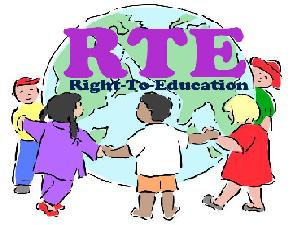
The Survey said, over 2,80,000 new school buildings have been constructed and over 12,46,000 teachers have been appointed under the scheme in that time.
Speaking about the mid-day scheme, the report said about 105 million children had benefited from the programme during 2011-12.
What is RTE Act provides?
- Right of children to free and compulsory education till completion of elementary education in a neighborhood school.
- It clarifies that ‘compulsory education' means obligation of the appropriate government to provide free elementary education and ensure compulsory admission, attendance and completion of elementary education to every child in the six to fourteen age group. ‘Free' means that no child shall be liable to pay any kind of fee or charges or expenses which may prevent him or her from pursuing and completing elementary education.
- It makes provisions for a non-admitted child to be admitted to an age appropriate class.
- It specifies the duties and responsibilities of appropriate Governments, local authority and parents in providing free and compulsory education, and sharing of financial and other responsibilities between the Central and State Governments.
- It lays down the norms and standards relating inter alia to Pupil Teacher Ratios (PTRs), buildings and infrastructure, school-working days, teacher-working hours.
- It provides for rational deployment of teachers by ensuring that the specified pupil teacher ratio is maintained for each school, rather than just as an average for the State or District or Block, thus ensuring that there is no urban-rural imbalance in teacher postings. It also provides for prohibition of deployment of teachers for non-educational work, other than decennial census, elections to local authority, state legislatures and parliament, and disaster relief.
- It provides for appointment of appropriately trained teachers, i.e. teachers with the requisite entry and academic qualifications.
- It prohibits (a) physical punishment and mental harassment; (b) screening procedures for admission of children; (c) capitation fee; (d) private tuition by teachers and (e) running of schools without recognition.
- It provides for development of curriculum in consonance with the values enshrined in the Constitution, and which would ensure the all-round development of the child, building on the child's knowledge, potentiality and talent and making the child free of fear, trauma and anxiety through a system of child friendly and child centred learning.
For Quick Alerts
For Daily Alerts



 Click it and Unblock the Notifications
Click it and Unblock the Notifications



























